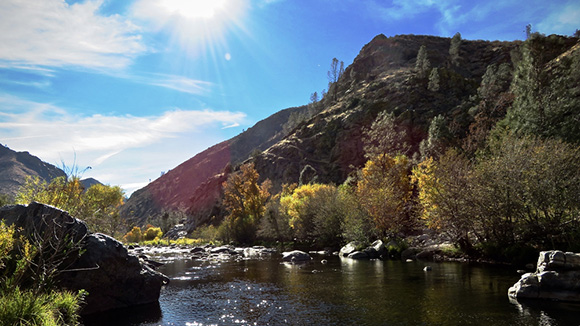If you’ve visited Coastline College’s Mental Health Awareness page, you may be familiar with the 54321 Technique - a sensory-based grounding exercise involving the five senses that can help reduce anxiety and manage acute stress. This week, we’re exploring the Time-In portion of a Healthy Mind Platter, which is essentially the 54321 method but on a broader scale as related to your memories. While your past may not define you, the events of your past and how you’ve responded to them have contributed to the person you are, or are still becoming. Join Claudia this week for some Time-In and learn the importance of opening up your senses to your memories.

I had dinner with my parents a few evenings ago and we were reminiscing about a 2-week road trip we had done in California 35 years ago with 15 other families we knew at the time. We recalled the antics of both children and adults, wondered how some of the families are doing today, and remembered those who are no longer with us. There was one day that stood out to us for different reasons.
Explore Mental Health Services @ Coastline
We were at Kern River and had found a relatively large waterhole that was safe for us kids to frolic in. My mom recalled bathing in the waterhole with the other women while they laughed and joked about their stage of life. My dad recalled sitting on boulders with the men while they engaged in friendly banter and supervised the younger children; ensuring they didn’t go beyond the waterhole where the current was dangerous. I observed the adults and felt their relaxed, carefree interactions and relished their contentment. It was a joyful memory. One that I still recollect with great fondness. I also remember the strength of the current, the natural waterslide the older kids played on, the cold water that left your legs numb. It was a beautiful blue skied, puffy white clouds, sunny, summer day. Us older kids were always up for adventure when the adults were preoccupied in their own revelry.

The water hole with all its musings wasn’t what I remembered most clearly that day. That day my world stopped and sped simultaneously. I remember seeing my friend slipping on a mossy rock. I laughed because he had refused to be chilled by the water and had managed to keep dry up until that moment. He never regained his footing. He was swept by the current, around the bend, and out of sight.
I remember running through the brush on the riverbank to catch sight of him, being seized by fear and anxiety, completely ignoring the twigs digging into my feet and branches lashing at my legs. I yelled out for him, the roar of the water crashing against rocks, and being conscious of the fact that a child had already died in Kern River that summer. I couldn’t keep my eyes off the river, hoping to see a glimpse of him, his red swim trunks, any evidence that he had his head above water. We were both 16 years old. I remember the look on his face when I finally saw him; the deep, bleeding lacerations all over his chest. I was the first one to find him.
Learn More About Mental Health Awareness @ Coastline
I had dinner with my parents a few evenings ago and we feasted on the mental nutrients provided by Time-In. We re-experienced the sights, sounds, and feelings of that summer day. I had a large helping of Time-In mental nutrients as I wrote this story. And surprisingly, you also spent time engaging in Time-In as you read my story. Not just re-living my story with me but re-living your own parallel stories. You may have remembered the sensations of standing in a cold river, of a warm sunny day, of families laughing and playing together, of terror when tragedy hits, of unfathomable despair, of fatigue that follows relief, and the elation of joy.
He was alive, in shock, shivering, and had lacerations on his back as well. He recalls that day, too - the day he almost drowned. He remembers getting pulled under water and fighting to break through the roots of the bushes and trees that grow on the riverbank. In one look, we understood that this incident wouldn’t be mentioned to the adults, that he’d been spared, and that we were profoundly changed.

You have spent Time-In with my memory and yours. Time-In can be a recollection or a quiet, internal reflection. Time-In is attending to this present moment without criticism, judgement, or disapproval while focusing on sensations, images, feelings, or thoughts. Time-In is not difficult to do, but it does require vulnerability - an openness to what your senses are experiencing, an unfurling of the fist so you can receive with an open palm. Take care of your brain and have a helping of Time-In today; meditate, look at personal photographs, smell the roses, or tell a story.